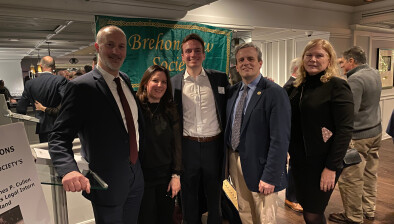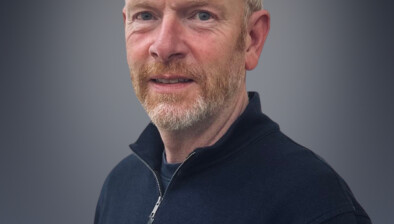NI: Man whose IRA membership was admitted in evidence at trial fails in Supreme Court appeal
A man who challenged the admission in evidence of material that revealed his membership of the Irish Republican Army (IRA) and meant he was convicted of being a member of a proscribed organisation has failed in his appeal to the UK Supreme Court that the material should have been excluded at trial.

About this case:
- Judgment:
President of the Supreme Court, Lord Neuberger, sitting with Lord Kerr, Lord Hughes, Lord Toulson and Lord Hodge unanimously dismissed the appeal of Terence Gerard McGeough.
Lord Kerr gave the only judgment, with which the other justices agreed.
In June 1981, Mr McGeough was implicated in the attempted murder of Samuel Brush, a postman and member of the Ulster Defence Regiment who was shot in County Tyrone. In the course of the attack, Mr Brush managed to fire a gun at his assailants, striking one of them.
Mr McGeough subsequently presented at a nearby hospital with a gunshot wound from what was later determined to be Mr Brush’s weapon. He received treatment there and at a hospital in Dublin and, despite being placed under police guard, he managed to escape and leave the country.
In August 1983 Mr McGeough applied for asylum in Sweden. The application was supported by the appellant’s account of his life, from which it appeared that he had been an operational member of the IRA and had participated in the attack on Mr Brush.
His application for asylum was dismissed, as was his subsequent appeal against the dismissal.
In November 2010, the appellant was tried at Belfast Crown Court for attempted murder and possession of a firearm.
He was convicted of both offences and neither conviction was challenged in his appeal to the Supreme Court.
At the same time, he was tried on two charges of membership of a proscribed organisation – the IRA – those charges being based on the material contained in the Swedish asylum application.
An application was made during the course of the trial that the Swedish material should not be admitted in evidence, either because it should be excluded under section 76 of the Police and Criminal Evidence Act 1984 (PACE) as having such an adverse effect on the fairness of the trial that it should not be admitted, or because the admission of the evidence would offend the rule against self-incrimination.
Having heard evidence from a Swedish legal expert, the trial judge rejected the appellant’s application on the basis that there was nothing in Swedish law, nor in Council Directive 2005/85/EC of 1 December 2005 on minimum standards on procedures for granting and withdrawing refugee status (the Procedures Directive), nor in general public policy considerations which prevented the disclosure by Sweden of the material in the asylum application to UK prosecuting authorities.
The appellant had been represented in Sweden by lawyers who must have told him of the Swedish rule that the papers in an asylum application were open public documents. The conditions necessary for exclusion of the material under section 76 PACE were therefore not present. Further, the appellant had not been under compulsion when providing the information in the asylum application so the privilege against self-incrimination was not engaged. The Swedish material was admitted in evidence and the appellant was convicted of the charges of membership of a proscribed organisation. The Court of Appeal dismissed the appellant’s appeal against conviction.
Lord Kerr explained that the need for candour in the completion of an asylum application is self-evident, but that should not be regarded as giving rise to an inevitable duty of confidence over material contained in them. There is no explicit requirement in the Procedures Directive that material disclosed by an applicant for asylum should be preserved in confidence for all time and from all agencies, just that (per Article 22 of the Procedures Directive) it should not be disclosed to alleged persecutors or in the course of examining the individual case (neither of which applied here). Nor does the overall purpose of the Directive assist the appellant in establishing a general prohibition on disclosure: Article 22 is precisely worded and to read into it a general duty of confidence would unwarrantably enlarge its scope.
Article 41 of the Directive requires member states implementing the Directive to abide by the confidentiality principle as defined in national law. Swedish law does not contain a duty of confidentiality over information supplied in support of an asylum application where that application has been unsuccessful, but favours such applications entering the public domain. The material provided by Sweden was lawfully supplied and the authorities in this country had a legal obligation to make appropriate use of it if it revealed criminal activity.
Whether the material would have been treated differently if it had originated in the UK did not affect the manner in which the trial judge was required to approach his decision under section 76 PACE. The judge was plainly right to refuse the application. Further, the absence of compulsion in the case of an application for asylum renders comparisons with situations involving compulsion (such as the requirement to answer questions under section 98 of the Children Act 1989) inapt.
The rule against self-incrimination does not require a prohibition on the use of evidence obtained through a non-compulsive procedure such as an application for asylum.








